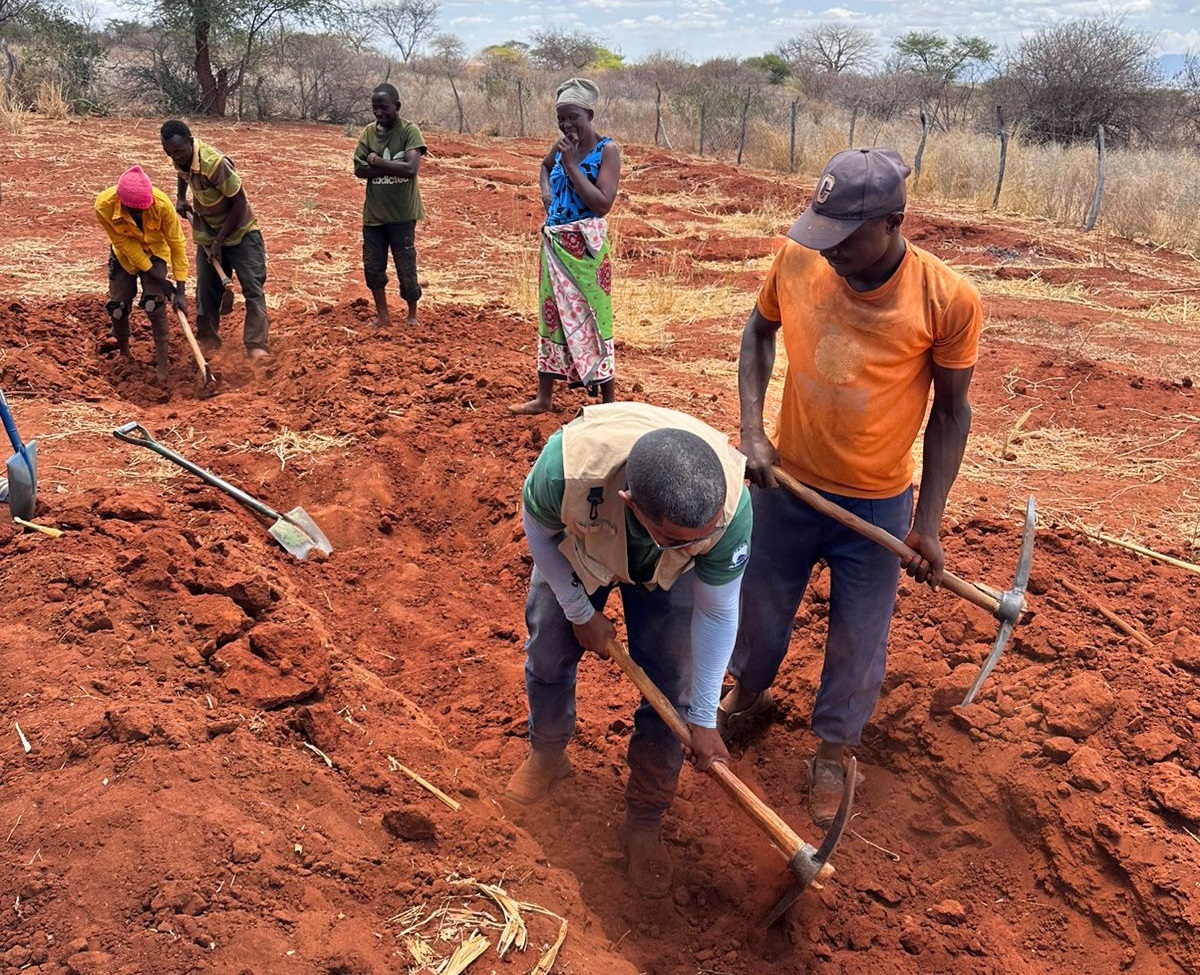
Providing school children with nutritious, locally produced food is the central objective of a technical mission to Kenya that began on October 5.
For 15 days, the Brazilian technicians, Luderlândio Andrade Silva, PhD professor at the Federal University of Campina Grande, and Joélcio Carvalho, agronomist and Partnerships Coordinator at the World Food Programme Centre of Excellence against Hunger in Brazil, will promote participatory activities in schools in the districts of Ndunguni, Nkarini and Kalimbui. “In all of them we are going to develop a local school feeding model with the production, purchase and consumption of fresh and local food,” said Joélcio.
Among the activities planned are the construction of a 16,000-liter cistern to collect rainwater, workshops on preparing school gardens, and activities on food and nutritional security, such as ways of storing food and seeds and preventing water contamination with homemade filters.
The mission is the result of a partnership between the government of Brazil, the WFP Centre of Excellence against Hunger in Brazil, the World Food Programme (WFP) in Kenya, the government of Kenya and the Rockefeller Foundation, with the aim of supporting countries to improve their school meal programs and accelerate sustainable expansion.
The mission’s agenda focuses on the implementation of social technologies that will enable these communities to improve their resilience to climate change and boost the sustainable development of the food system.
Water
According to Joélcio, the cistern plays a fundamental role in school feeding. “It will be used to produce water for human consumption and the well-being of the students. In addition, the surplus will be used to irrigate the gardens to produce fresh food and seeds,” he explained.
The school gardens turn the school into a self-sustaining structure. “They are gardens adapted to reduce water demand by 90% and guarantee nutritious vegetables every day, as well as being the nursery for seeds that we will donate to the parents of the student farmers, who will plant these seeds and then sell them to the schools,” he said.
Joélcio pointed out that the food produced will be prepared on ecological, low-wood stoves to avoid deforestation and smoke poisoning.
“In short, at the end of the two-week technical mission, three schools will be prepared with cisterns for collecting water, vegetable gardens for producing fresh food and seeds, and adapted stoves for less wood consumption and faster food preparation. This is the blueprint for Kenyan schools to be autonomous and have quality food,” Joélcio emphasized.




